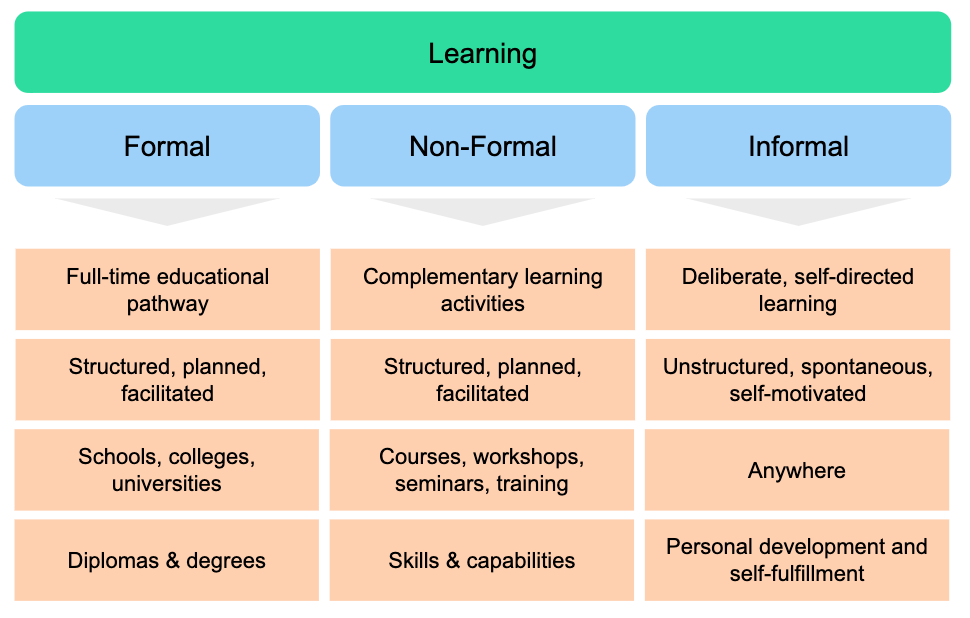Article
Project “YOUth Ambassadors of Non-Formal Learning”
ORGANIZATION: TÜRKONFED – Turkish Enterprise and Business Confederation
DATE: 08/06/2020
COUNTRY: Turkey
The history of non-formal learning
The first to use the term ‘non-formal education’ were Coombs and Ahmed (1974). They were convinced that education can no longer be limited to time-bound and place-bound school settings or quantified by exposure years, and concluded that education could be equated with learning; “Independently of where, how or when the learning takes place”. Afterwards, different theorists such as Rogers, Kolb or John Dewey, in various disciplines, have supported those idea and even improved by saying learning instead of education.
Now, lets look at two different – but close – definitions of non formal learning:
First, we will look to the definition of the establishers of this learning type, Coombs and Ahmed claims that non formal learning is any organized, systematic, educational activity carried on outside the framework of the formal system to provide selected types of learning to particular subgroups in the population, adults as well as children.
Second, Cedefop, EU defines non formal learning as “learning that is not provided by an education or training institution and typically does not lead to certification. It is, however, structured (in terms of learning objectives, learning time or learning support). Non-formal learning is intentional from the learner’s perspective.”
As we understood from these two quotations, it derives from the conscious effort of the learner to master a particular activity, skill or area of knowledge and is consequently the result of intentional effort. It does not necessarily follow a formal syllabus or be governed by an external accreditation or assessment, so it does not lead the learner to a certificate in the end of the process.
In daily life, you can see the examples of non-formal learning around everywhere. This learning type may take place in a variety of locations such as camps, sport clubs, art classes, theatre clubs, especially in non-governmental organizations and civil society organizations and in their voluntary activities meaning that everywhere out of a formal setting. What we can understand from this, non formal learning is generally based upon being volunteer to have it.
Moreover, non formal learning is relevant to the needs of disadvantaged groups for instance; Roma community as the biggest marginalized group in EU, disabled people, people who are the members of LGBTQ, migrants etc.. since it most frequently takes different groups of people into account, focuses on clearly defined goals and is versatile in terms of structure and methods
That being said, we can summarize the benefits of non-formal education as follows:
- Helps to grow and mature, both on a personal level and within society. Teamwork or coexistence may, in many cases, play a significant role.
- By developing each individual's skills, it enhances their self-esteem.
- Non formal learning capacities the desire to know and to explore on your own develops a healthy critical attitude towards the environment, social norms and structures of power.
- It can be easily attached to the life-long and experiential learning.
So, what are the methods used in non-formal learning?
Discussions, work in pairs, trios, small and big groups, interactive role-playing games, icebreakers, team-building, simulations, living library, forum theatre, city game, intercultural and other parties, energizers, daily evaluations etc.. All of these methods can be adapted according to the age of the learners, related topic, learning area and so on.







